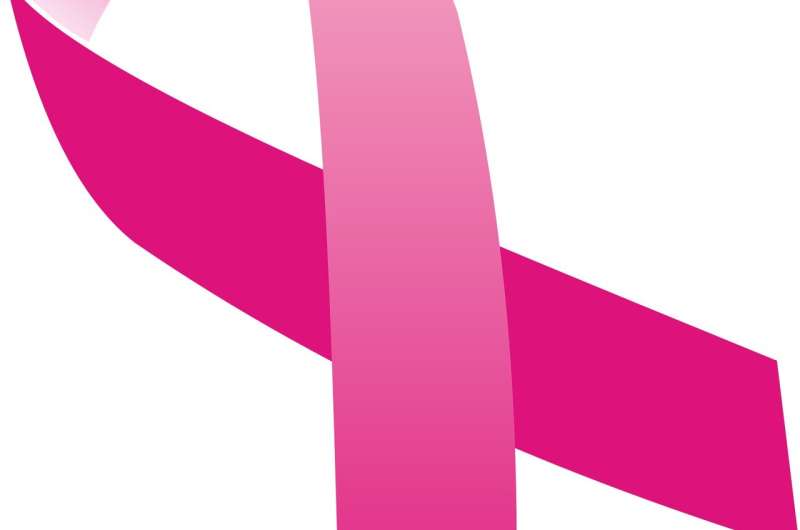One-third of cancer patients say coronavirus has impacted their treatment

One in three cancer patients said their treatment has been impacted by the effects of COVID-19 on the health system, according to survey results published by Cancer Research UK.
This equates to hundreds of thousands of people experiencing cancellations, delays and changes to their treatment across the UK. Since lockdown began 18 weeks ago, we estimate that around 38,000 fewer treatments have taken place—adding to a growing backlog.
Around 4 in 10 people (42%) also said their tests—including those to find out whether their cancer had spread or returned—had been affected, according to the survey of 1,900 cancer patients carried out in May.
Michelle Mitchell, Cancer Research UK's chief executive said: "COVID-19 has undoubtedly put a huge strain on people affected by cancer and has had an extraordinary impact on their care and wellbeing. We've been hearing many of these stories over the past few months."
"I am still waiting to speak to someone to know if I can have treatment"
One survey respondent who had treatment for early stage breast cancer said that her annual mammogram was postponed indefinitely. "I worry that if I have a recurrence, [it] will be more advanced than it would have been pre-COVID. And I worry there's no access to treatment."
Around 70% of people who had delays or cancellations to cancer testing and treatment also reported feeling more frustrated and anxious.
Because some cancer treatment can put patients at a higher risk of serious illness due to COVID-19, the NHS had to make difficult decisions to delay or change appointments for some people during the peak of the pandemic. Nearly half of all cancer patients surveyed were worried about catching COVID-19 and a similar proportion were worried about becoming seriously ill from it.
And it's not just treatment and tests that have been affected. Around two thirds (64%) of patients said that the NHS's ability to support their emotional well-being or their mental health had been impacted.
A man with stage 4 lung and gastrointestinal cancer, aged 33, said: "My diagnosis is terminal, and I wish I could attend support groups consisting of other terminal patients. It's been upsetting coping with this without easy access to emotional support services."
Professor Charles Swanton, Cancer Research UK's chief clinician, said the impact that COVID-19 has had on cancer patients during the pandemic has been profound. "I've had some difficult conversations with patients throughout the pandemic to explain adjustments to their treatment plans. It has been a stressful and lonely time for many patients, worried about coming to hospital for fear of catching the virus or having their treatment delayed or altered."
"I felt short-changed being moved down the list again"
Sarah Mills, aged 37, from London was diagnosed with stage 3 bowel cancer in 2018. She had been waiting for surgery to reverse a stoma—where the bowel is rerouted through an opening in the abdomen—for nearly two years, following her treatment.
"Even though I had successful surgery to remove the tumour from my colon after diagnosis, complications have meant that I've been in and out of hospital ever since."
Sarah says a lack of funding has meant that the staff at my hospital couldn't work through the waiting list quickly enough to get to her operation. She was finally due to have the operation in March, 18 months after her treatment.
"The night before my operation I answered the phone to my surgeon. She told me that because many of their staff were isolating, they couldn't carry out the procedure safely and had to postpone the operation."
Sarah said that she felt "short-changed" being moved down the list again. "I know that waiting lists are made worse by the limited resources at my hospital and that everyone is waiting to get back to normal. I've been waiting for two years but I finally had my surgery on Thursday—I'm so glad it finally happened."
Getting cancer services back on track during COVID-19
Mitchell says despite the disruption, there are reasons to be optimistic. "Since the peak of the pandemic, the NHS has started to restore cancer services and more people are being referred to hospital for tests."
Some cancer services have started to recover since this survey was carried out in May, with more patients being referred to hospital with suspected cancer symptoms and cervical screening restarting in many cases.
But we're worried that treatment, diagnosis, and screening aren't getting back on track fast enough—and the backlog is mounting. We've blogged before about what needs to happen to get cancer services back on track.
"The Government must ensure, in advance of a resurgence of COVID-19 in the winter months, that patients have access to COVID-19-protected hospital facilities across the country so they can be cared for with little risk of contracting the virus," says Swanton. "This is why we've been calling for regular COVID-19 testing of patients and staff—to ensure their safety, build confidence in hospital services and tackle the growing backlog."
Mitchell says that with the widespread impact of COVID-19, our mission to beat cancer has never been more urgent. "We want to make sure patients have access to the best possible care, but we need support from the public to continue to fund life-saving research."



















